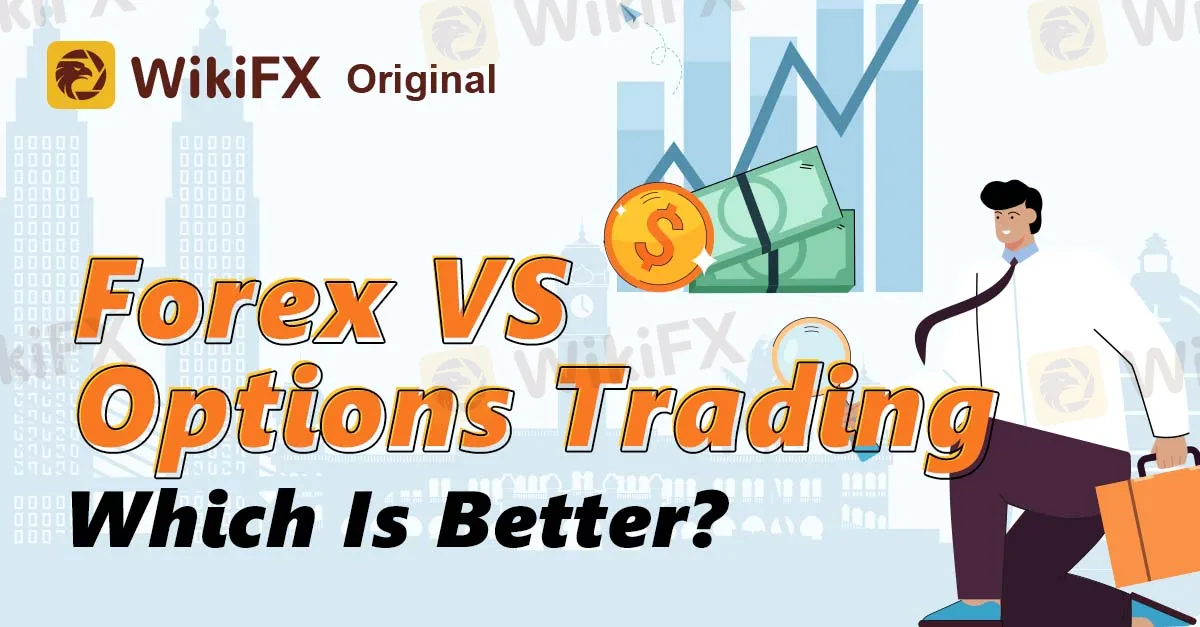简体中文
繁體中文
English
Pусский
日本語
ภาษาไทย
Tiếng Việt
Bahasa Indonesia
Español
हिन्दी
Filippiiniläinen
Français
Deutsch
Português
Türkçe
한국어
العربية
Forex VS Options Trading - Which Is Better?
Abstract:Both forex trading and options trading involves the use of margin, which is an essential component for any day trading strategy.

For those that are wondering whether they should consider forex or option trading, this article is for you!

Forex trading, also known as currency trading, entails exchanging one currency for the value of another currency, known as the exchange rate. To put it simply, it is a 24/5-market in which nations, financial institutions, and individuals can gain access to the currencies of other regions for purposes such as international trade. Although financial institutions such as commercial banks handle most of the trading volume on behalf of their customers, individual investors can also learn how to trade currencies to meet their needs. They also can profit from periodic fluctuations in the exchange rate, which is a common way for traders to profit. Perhaps one feels the U.S. Dollar will get stronger compared to the British Pound or the Euro. A strategy can be developed to affect this trade, and if the research is correct, a good profit can be made.

Options trading allows you to buy or sell options on large amounts of stock, futures, or other assets that you believe will rise or fall in value over a set period of time. Options contracts only give the parties a right, not an obligation or responsibility, which they can choose to exercise or not. A “premium” is a fee paid to purchase or open an options contract position. Call and put options are the two main types of options. A call option grants its holder the right to purchase an asset at a predetermined price within a specified time frame. When the buyer exercises this right, the seller of the option is bound by the terms of the sale contract. Put options, on the other hand, give the buyer the right to sell an asset at a predetermined price within a specified time frame. When a put option buyer chooses to exercise his or her selling rights, the option seller is obligated to purchase the assets specified in the contract. Thus, a call option buyer profits as the price rises, whereas a put option buyer profits as the price falls. Options trading is a leveraged market, which allows the trader to multiply the original trade value by several times. This can magnify both profits and losses.
In conclusion, when it comes to forex vs options trading, the forex market has advantages such as 24-hour trading, good liquidity, fast execution, and low commissions. However, options can provide higher percentage returns with limited downside and several strategic alternatives that traders can combine with other assets.

Disclaimer:
The views in this article only represent the author's personal views, and do not constitute investment advice on this platform. This platform does not guarantee the accuracy, completeness and timeliness of the information in the article, and will not be liable for any loss caused by the use of or reliance on the information in the article.
WikiFX Broker
Latest News
Geopolitical Events: What They Are & Their Impact?
Top 10 Trading Indicators Every Forex Trader Should Know
ASIC Sues Binance Australia Derivatives for Misclassifying Retail Clients
Why Do You Feel Scared During Trade Execution?
Revolut Leads UK Neobanks in the Digital Banking Revolution
Fusion Markets: Safe Choice or Scam to Avoid?
North Korean Hackers Steal $1.3bn in Cryptocurrency in 2024
Currency Calculator


